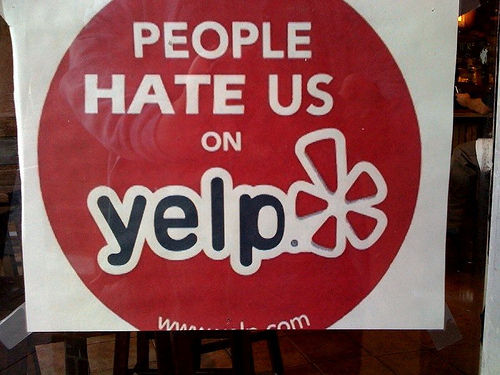Are Online Reviews More Influential Than Advertising?
February 7th, 2012 by


When it comes to how we consume, things have dramatically changed over the last twenty years. For instance, if your mother and father wanted to go to a restaurant in the seventies, it was probably because they heard it was good from friends or neighbors or simply wanted to give it a shot. 1979 brought about the debut of the Zagat guide, which of course gave people more of a guideline than ever before. Fast forward a few decades, and there’s suddenly more information than you could imagine available for everything from eateries to shopping for clothing. Because of the popularity of the internet as a means of sharing information, people can now log on and leave reviews for all sorts of experiences, making it that much harder to pass off a bad meal or a sleazy transaction than it used to be. In some ways, it’s great. But how is it affecting us as consumers?
If numbers are to be believed, the effect is greater than you might think. In fact, it seems as if user reviews are the method of choice when it comes to consumers making decisions in the modern age. Financial agency Deloitte were recently quoted as saying that:
“82% (of consumers) say their purchase decisions have been directly influenced by the user reviews, either influencing them to buy a different product than the one they had originally been thinking about purchasing or confirming the original purchase intention.”
Naturally, Deloitte aren’t the only ones noticing the trend. Media Planning company EXL Media also tells us that the numbers are rising when it comes to advertising versus consumer review:
“55% of U.S. consumers believe strongly/somewhat that online consumer reviews and ratings influence their buying decisions more than any type of online advertising.”
These are no small figures! So I guess all those people logging into Yelp from their phones and madly blogging about their experiences aren’t just a voice after all. Collectively, we form something stronger — a body of opinions that has enough klout to get people reading and making choices. In fact, making choices that disdain traditional advertising. In other words, the system is changing yet again — and advertisers will be forced to reinvent themselves if they want to compete with the voices of the common people.
This movement isn’t limited to finding a good place to eat, either. Even doctors are included, as there are websites such as Vitals that allow you to find and rate doctors. Deloitte tells us that home electronics rate among the items people seek out online reviews for most often, with personal electronics, games and toys and kitchen appliances close behind.

